Archaeological artifacts found at site of a proposed hotel in Mississauga
Published January 18, 2020 at 4:00 am
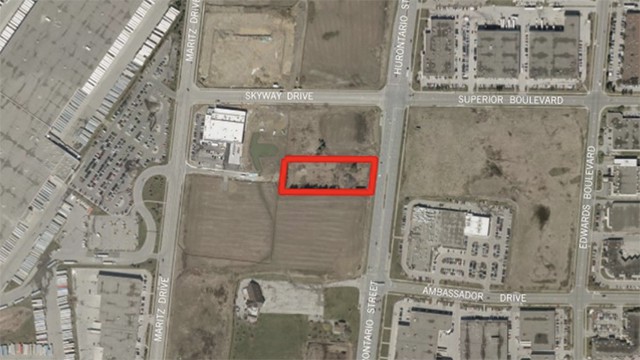
The site of a proposed hotel development in Mississauga is home to some 19th-century artifacts.
According to a recent archaeological assessment, The Archaeologists Inc. was contracted to conduct an assessment for 6710 Hurontario Street–a vacant lot that could become home to a nine-storey hotel, banquet hall, and restaurant.
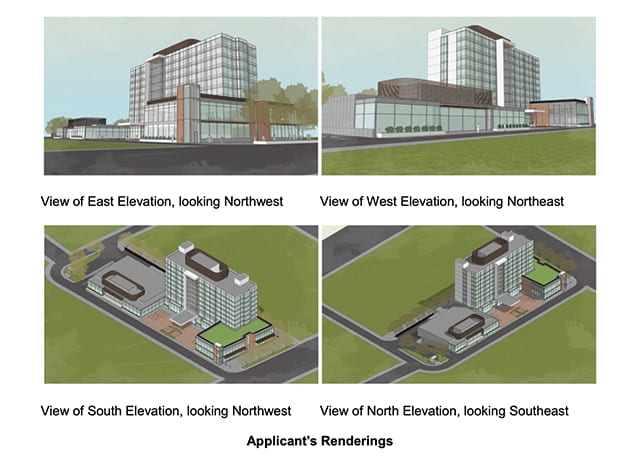
The lot is located on the west side of Hurontario Street between Courtneypark Drive West and Skyway Drive.
According to the assessment, the site consists of an area measuring approximately 15 metres by 15 metres and “seven positive test pits.” Over the course of the assessment, the organization discovered 23 ceramic, glass and metal artifacts dating from 1840 to 1870.
“Given this, Site H1 is considered to be of further cultural heritage value and it is recommended that the site be subject to a Stage 3 site-specific archaeological assessment,” the report reads.
The report says most of the ceramic is refined white earthware, which came into common use in Ontario by 1835 and replaced earlier wares such as pearlware. The report says the glass found includes both clear and green bottles.
The assessment also unearthed two machine-cut nails, pipe stem fragments, and red clay earthenware.
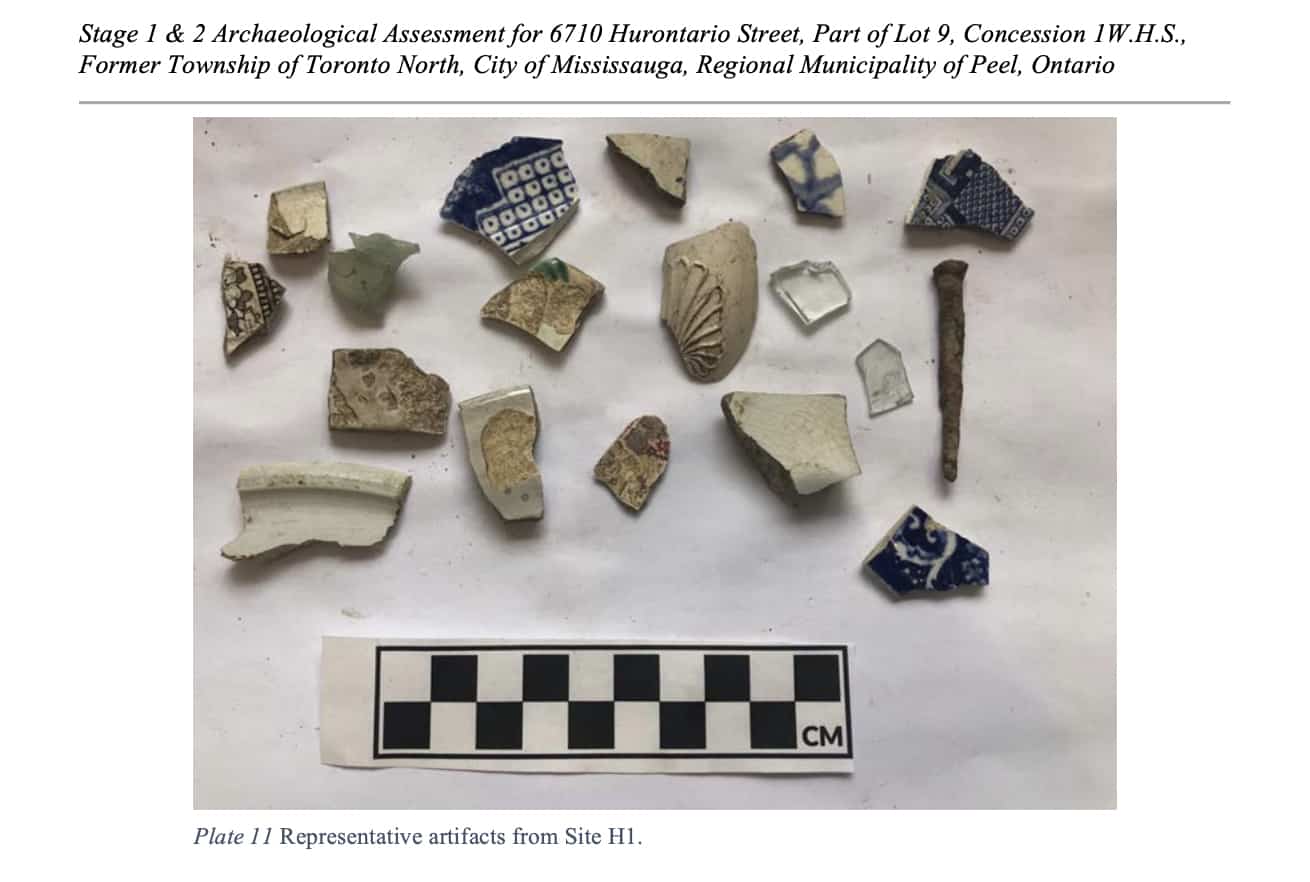
According to the report, the 1858 Tremaine Map of the County of Peel indicates that the lot was owned by William Oliver, father to Josiah Oliver (who, along with his brother, went on to own the lot, according to the 1878 Illustrated Historical Atlas of the County of Peel mentioned in the report).
The report says that William “Billy” Oliver was born in 1802 in Monaghan, Ireland. In 1826, he married Ann Hunter in Ireland before emigrating to Canada in 1827. He originally resided in the township of Chinguacousy, and it’s not known when he purchased the lot.
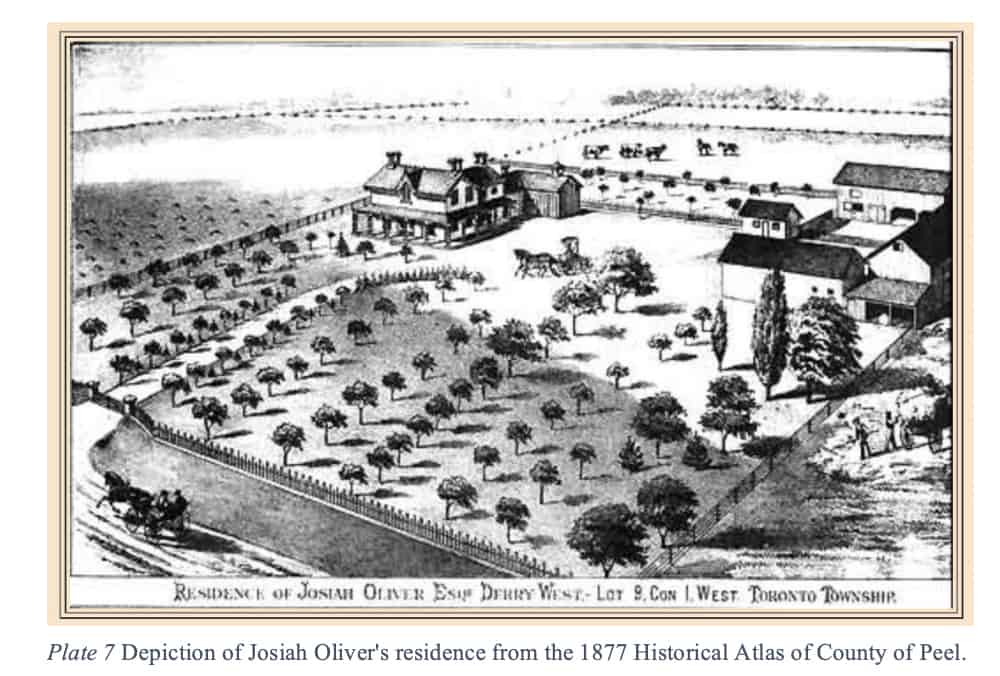
That said, the report notes that the agricultural section of the 1861 census indicates that he owned 240 acres of the property in question. He is listed as a farmer and his farmland was valued at $11,000.
The report says that William Oliver and Ann Hunter had seven children, including three boys and four girls: Robert Oliver (1830-1857), Ann Oliver (1834-1907), William Josiah Oliver (1841-1921), William James Oliver (1847-?), Sarah Oliver (1841-1882), Charlotte Oliver (1843-?), and Elizabeth Oliver (1844-1854).
The report says that the senior Oliver died in 1864 in Peel County. His cause of death is not known.
According to the report, he had been widowed for 14 years at the time of his death, and Ann ‘Nancy’ Hunter is buried in Dixie Union Cemetery in Mississauga.
In his will, the elder Oliver left his land holdings to his two surviving sons, Josiah and William James. The report says that Josiah Oliver is listed as a farmer in the 1871 personal census.
The report says that Josiah married Mary Ann Carter on Dec. 13, 1868, and that the couple went on to have nine children. Mary Ann died in 1887 at the age of 39. The report says her cause of death is listed as a four-hour accidental hemorrhage.
Josiah Oliver remarried a woman named Hannah Isabelle King on Dec. 27, 1893.
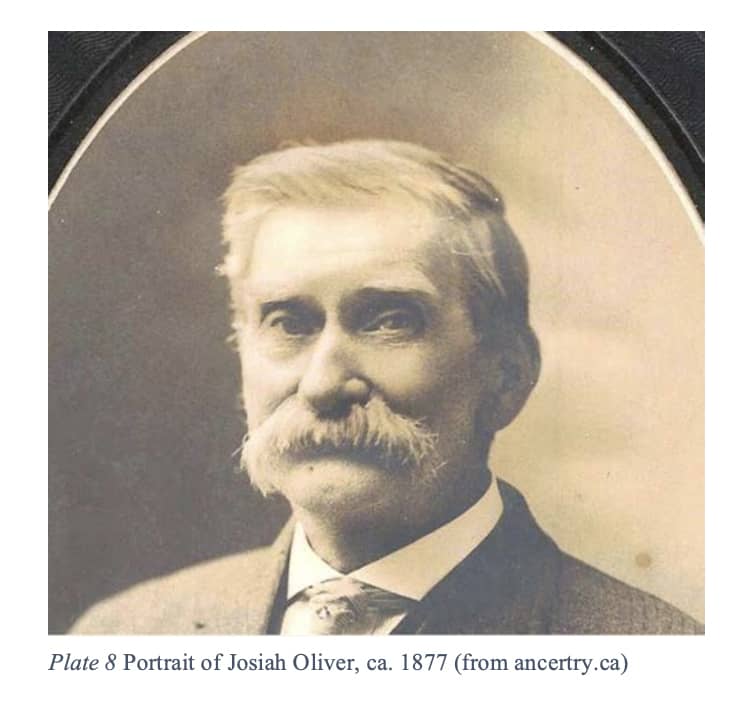 “Our preliminary search of the archives indicates that Josiah Oliver appears to have done quite well for himself as a farmer and rose to some prominence within Toronto Township,” the report says, noting that he was a member of the school committee for Derry West Public School.
“Our preliminary search of the archives indicates that Josiah Oliver appears to have done quite well for himself as a farmer and rose to some prominence within Toronto Township,” the report says, noting that he was a member of the school committee for Derry West Public School.
The report says the 1877 historical atlas depicts his estate and suggests that he lived in a one and a half or two-storey frame house and that this estate had an orchard and several buildings associated with a typical farm complex of the period.
The report says Oliver left Canada for California in his later years. He died in 1921 at the age of 80 in Los Angeles.
“Based on the archival research conducted, it appears that Josiah Oliver occupied the north half of [the lot] by 1864 when he inherited the land from his father. Given his relative importance in the community as a farmer and school committee member, any existing archaeological resources that may still exist within the subject property should be considered to be of significant cultural heritage importance,” the report reads.
A spokesperson for the City of Mississauga told insauga.com that the hotel proposal has not yet been approved.
Photos courtesy of The Archeologists Inc. and the City of Mississauga
INsauga's Editorial Standards and Policies


